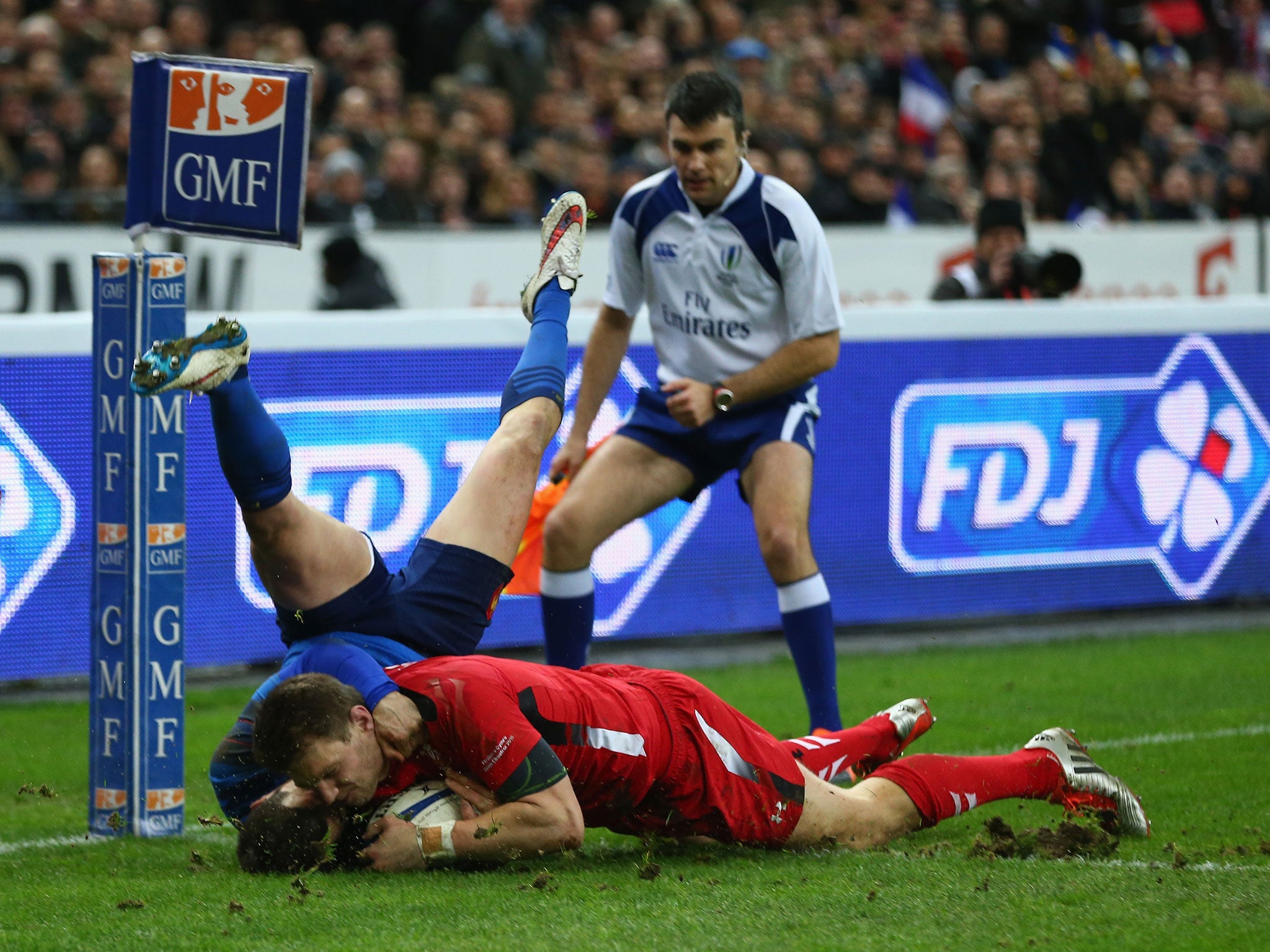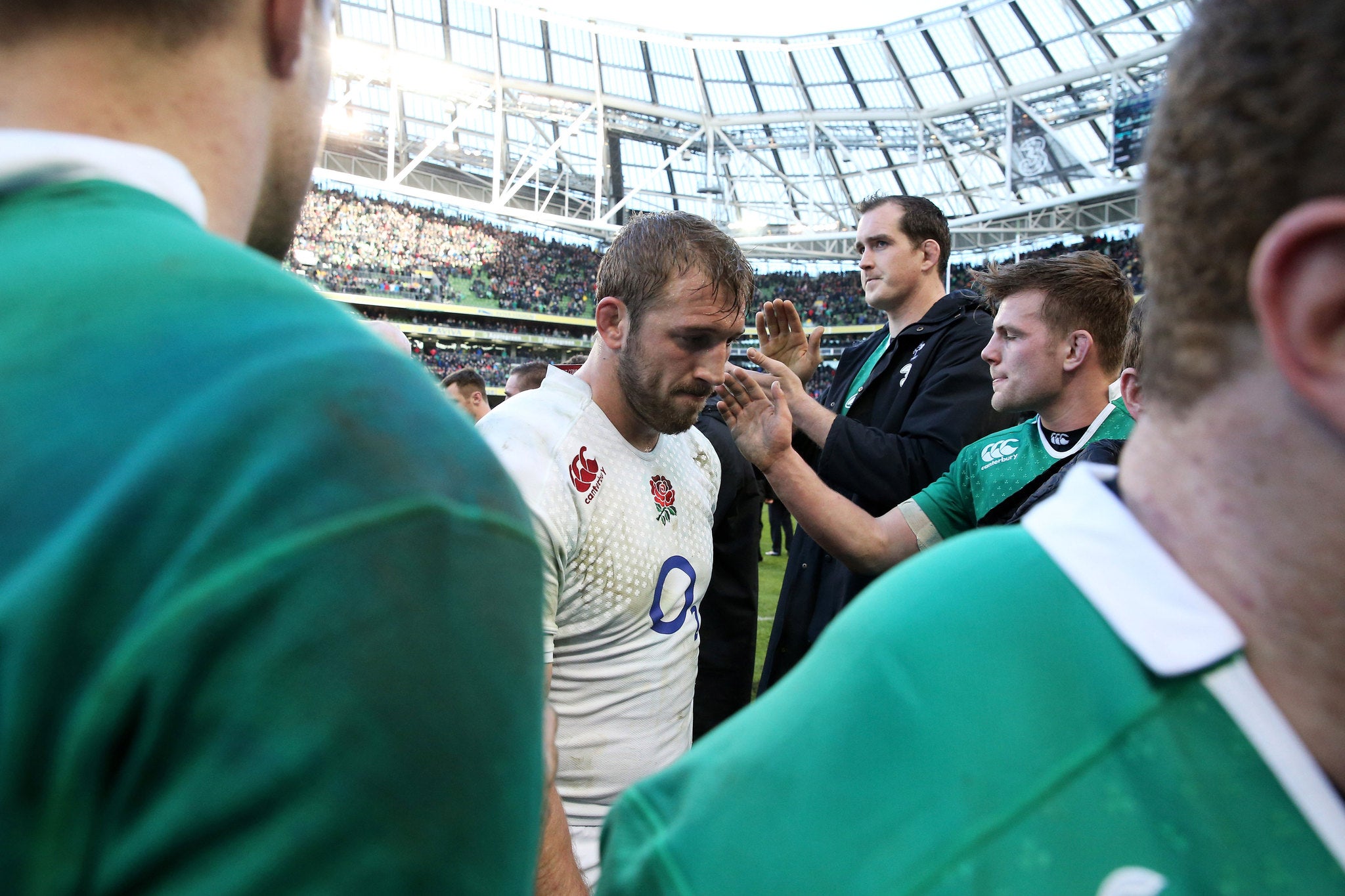Six Nations 2015: Five things we learnt from the weekend - Scotland self-destruct, England's pack can be beaten, Wales have a Plan B
France find solace in Parra but frustration in Lopez and Ireland continue to command the skies
Your support helps us to tell the story
From reproductive rights to climate change to Big Tech, The Independent is on the ground when the story is developing. Whether it's investigating the financials of Elon Musk's pro-Trump PAC or producing our latest documentary, 'The A Word', which shines a light on the American women fighting for reproductive rights, we know how important it is to parse out the facts from the messaging.
At such a critical moment in US history, we need reporters on the ground. Your donation allows us to keep sending journalists to speak to both sides of the story.
The Independent is trusted by Americans across the entire political spectrum. And unlike many other quality news outlets, we choose not to lock Americans out of our reporting and analysis with paywalls. We believe quality journalism should be available to everyone, paid for by those who can afford it.
Your support makes all the difference.After Italy stunned Scotland with a last-minute win at Murrayfield, Wales fought their way past a much-improved French team in Paris and Ireland outclassed England, we take a look at what we learnt from the third round of 2015 Six Nations matches.
Scotland’s ill discipline is self destructive
If Vern Cotter had any hair left on his head, he would have been pulling it out in sheer frustration on Saturday afternoon, as his Scottish side seemed intent on relinquishing a winning position by conceding a succession of stupid penalties.
Plenty of fingers have been pointed at Peter Horne, for failing to find touch with his penalty kick in the 78th minute. But Alex Dunbar became the real criminal when he needlessly dived off his feet at the breakdown on halfway, just seconds after Horne’s miskick, because Luke Mclean kicked Italy into rolling-maul range from the resulting penalty. Horne’s punt was inaccurate but Dunbar’s actions were inexcusable.
Scotland refused to learn from Dunbar’s diabolical decision making and less than a minute later, debutant Ben Toolis was retreating to the sin bin after being penalized for dragging down the maul.
Scotland were reeling and they simply had no legal answer to the awesome power of the Azzurri pack. The Scots managed to stop the initial Italian surge but when the visitors formed another, Scotland were not strong enough to shove it back or swift enough to sack it at the source so they desperately resorted to clawing it down.

The hosts’ 13th infringement of the match proved one too many for referee George Clancy, who went sprinting under the posts to rightly award Italy the match-winning penalty try, before showing the other Scotland debutant Hamish Watson a yellow card.
Scotland topped the penalty chart in last year’s tournament with 60, and they are well on their way to exceeding that figure this year, having already conceded a grand total of 38 in their first three games.
France are half way towards discovering a dependable half-back partnership
Philippe Saint Andre has been criticized for many of the decisions he has made during his time in charge of France, but no one can claim that he has failed to explore a range of half-pack pairings.
On Saturday evening Clermont Auvergne teammates Morgan Parra and Camille Lopez became the 15th half-back partnership to start for France under Saint Andre, but the latest duo were unable to inspire Les Blues to victory.
Parra was an immense improvement on his predecessor Rory Kockott. He reclaimed the number nine shirt with real authority and propelled the hulking French pack through the Welsh defence, with some dynamic darts and deft passing.

However, his outside half faltered. Lopez played with a more expansive approach than he did against Scotland and Ireland, and proved that he has the capacity to create chances and set his potent back line in motion. But unfortunately for the French, he abandoned his composure along with his conservative attitude.
The French fly half missed two kickable penalties, kicked possession away on several occasions when confronted by the Welsh blitz defence and squandered an opportunity to give France the lead in the 33rd minute, when he threw a forward pass to Yoann Huget, which the winger collected and crossed over for a disallowed score.
Wales have a Plan B
For those cliché enthusiasts out there, unfortunately for you, Wales made it abundantly clear on Saturday evening that they can in fact call upon a plan B. However, do not despair, as in the same performance they also confirmed that it is still the forwards that win games and the backs that decide by how many.
In the first half Wales were determined to wear down the hosts by attrition, but wave after wave of Welsh advances were repelled by a well-disciplined French defence. Warren Gatland’s side persisted, attacking with pace and plenty of width but after they enjoyed 76% of possession and 64% of the territory in the first 40 minutes, they will have wondered how ended the half with a merge 6-3 lead.

But after the break, the visitors maintained their aggressive approach and were rewarded for their perseverance, establishing a 17-6 lead.
France responded immediately and when Lopez converted Brice Dulin’s 67thminute try, Wales’ lead was reduced to four points and old doubts over their finishing abilities began to resurface in the minds of Welsh fans. Gatland’s men have struggled to see out games in the closing stages, especially against Southern Hemisphere opposition, and when they have their backs against the wall, their critics claim that they do not know where to turn.
But Wales altered their approach effectively, they defended patiently, fought doggedly for the turnover and when they reclaimed possession, they kept it tight and kicked themselves out of trouble.
Ireland continue to command the skies
Before they crossed the Irish sea, England would have known that three things were certainly going to happen at the Aviva Stadium on Sunday: Rory Best would refuse to sing a single word of Ireland’s Call, the towering Devin Toner was going to trouble them at the line-out and the Irish half backs were going to bombard them with high balls.
But all the English expectation and preparation counted for nothing when they came up against the meticulous boots of Conor Murray and Jonathan Sexton.
Ireland used none of the short-range chips that had proved so effective against the French two weeks ago, instead Sexton and Murray accurately kicked high and short, inviting the Irish backs onto the ball and tormenting in inexperienced English back three.

Alex Goode dropped several catches and was comfortably beaten in the air for Robbie Henshaw’s try, while Jack Nowell failed to secure a number of high balls and looked vulnerable throughout. The only Englishman, who appeared able to catch the Irish kicks was fly half George Ford. But as a collective, England were so inept at fielding the high ball that they were pinned back in their own half for the majority of the match.
Henshaw, Tommy Bowe and Rob Kearney, who all have all clearly benefited from their backgrounds in Gaelic football, won the aerial battle comfortably, but Sexton’s hamstring injury is a real cause for Irish concern, especially after Ireland’s kicking game deteriorated as soon as he departed.
England’s pack are not impervious to pressure
After bullying Wales in Cardiff and brushing past the Azzurri at Twickenham, the menacing men in white were confident that they could overpower Ireland on Sunday.
But when Ford fielded Murray’s box kick and the Irish forwards flooded into the breakdown and forced the visitors to concede a penalty, with less than 30 seconds on the clock, it became immediately apparent that England had an arduous breakdown battle ahead of them, a battle which they lost.

Every time the ball went to ground Ireland’s pack were first on the scene, swarming into the rucks with power and purpose. Joe Schmidt’s sides were relentless and they were rewarded handsomely for their hard work, securing a staggering 23 turnovers.
England were unable to build any phases, for long periods of the match, and when they did manage to recycle possession, they were so rattled by the Irish onslaughts that they were forced into making a series of errors.
When all else failed, England were supposed to dominate Ireland in the scrum, but the men in green were outstanding in the set piece. Many had come to believe that England’s scrum was an unstoppable force but that theory unraveled when they were confronted by an immovable Irish object. The hosts even achieved the unthinkable when they dismantled the English scrum in the 50th minute and won a penalty.
Join our commenting forum
Join thought-provoking conversations, follow other Independent readers and see their replies
Comments